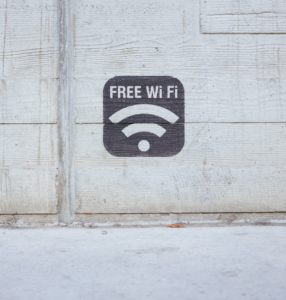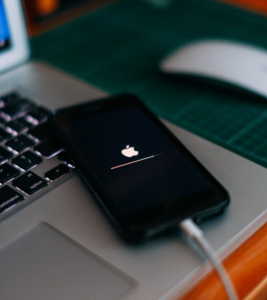
In today’s hyper-connected world, our smartphones have become a big part of our lives. They serve as our personal assistants, social hubs, and even gateways to our sensitive data. As technology continues to advance, the risk of our phones falling victim to hacking attempts has become a pressing concern. From identity theft to financial fraud, the consequences of a hacked phone can be far-reaching and devastating. However, with a proactive approach and a few simple yet effective measures, you can fortify your digital fortress. Let’s explore some invaluable tips to prevent you from getting hacked, and go over some best practices to help you safeguard your smartphone from falling into the wrong hands. By implementing these tips, you can enhance your digital security, protect your personal information, and enjoy a worry-free smartphone experience.
1. Use Strong Passwords
Using strong passwords is the first step to protecting your smartphone from hackers. I’m not just talking about your online password (those are just as relevant here too)– I’m also referring to the password, pattern, or pin you use to open your smartphone. This is usually your phone’s first line of defense. If you’re used to using pins or patterns on your lock screen, then our first tip to prevent you from getting hacked is to switch to a password protected lock. They’re more secure, and it can be very hard to crack. The best practice for setting a password is to use a combination of symbols, numbers, and upper/lowercase lettters. For example, instead of using Charles1999 as your password, you can use something like C#@rl£$!999. This way, your password is still easy to remember and hard to guess.
2. Be Smart on Social Media
Pictures, videos, posts, and messages aren’t the only things that fly around constantly and mostly unchecked on social media; links do too. And sometimes those links do nothing but make your phone susceptible to hacking.
These links usually take you through a somewhat endless stream of websites, and you keep getting redirected. While you’re being redirected, your data or information is also being redirected to the hacker’s database. It doesn’t even stop there. Some links contain malware or viruses that can go as far as stealing your passwords and even shutting you out of your own phone.
Links aren’t the only hacking threat that social media presents. You can also be a hacking threat to yourself. You have to be very cautious of the information about yourself you share on social media. This is especially true for things that have to do with your finances or personal information.
3. Stay Off Public Wi-Fi
Public Wi-Fi networks are unencrypted, which means that any data you transmit over the network is not secured and can be intercepted by hackers. Hackers can use a variety of techniques to intercept your data, such as “man-in-the-middle” attacks. This is where they intercept the communication between your device and the network. This can allow them to access your personal data, including your passwords, credit card numbers, and other sensitive information.
Moreover, hackers can also set up fake Wi-Fi networks that mimic legitimate networks to trick users into connecting. These networks are known as “evil twin” networks, and once you connect, hackers can gain access to your device and steal your data.
Therefore, if you want to prevent your phone from being hacked, it is crucial to avoid using open Wi-Fi networks. Instead, use password-protected Wi-Fi networks or cellular data networks to access the internet. If you must use a public Wi-Fi network, ensure that it is a legitimate network and consider using a virtual private network (VPN) to encrypt your data.
4. Download Security Apps For Extra Protection
Most smartphone manufacturers today already provide their phones with good enough protection (a firewall) against hackers and malicious software, but you can always help them be better just to be totally safe. Our next tip to prevent you from getting hacked is to download a security app for enhanced protection. Most of these apps will help you scan files and apps on your phone for any suspicious activity or viruses.
5. Update Regularly
Updating your phone regularly is very important if you want to prevent your device from being hacked. The reason for this is that most updates don’t just improve the phone’s software; they also carry patches that fix identified security flaws that hackers can exploit. This is why Android OEMs release monthly security patch updates and why Apple is looking to start doing the same soon.
6. Check App Permissions
One way that hackers can gain access to your device is through the apps you download. When you download an app, you are often prompted to grant it certain permissions. These permissions allow the app to access various features on your phone, like camera, microphone, or location. However, some apps request unnecessary permissions that can put your device at risk
By granting an app unnecessary permissions, you are giving it access to sensitive data that it doesn’t need to perform its function. For example, a flashlight app that requests access to your contacts and text messages should raise red flags. If the app is malicious, it can use these permissions to steal your personal data or track your location,
Furthermore, some apps may have vulnerabilities in their code that can be exploited by hackers to gain unauthorized access to your device. If an app has unnecessary permissions, it can potentially provide a way for hackers to exploit these vulnerabilities and gain access to your device.








